China verstärkt Unterdrückung ausländischer religiöser Missionen
Ein Geheimdokument enthüllt die Pläne der chinesischen Regierung, die südkoreanischen christlichen Missionen in der Provinz Shanxi auszumerzen.
Ein Magazin über Religionsfreiheit und Menschenrechte in China
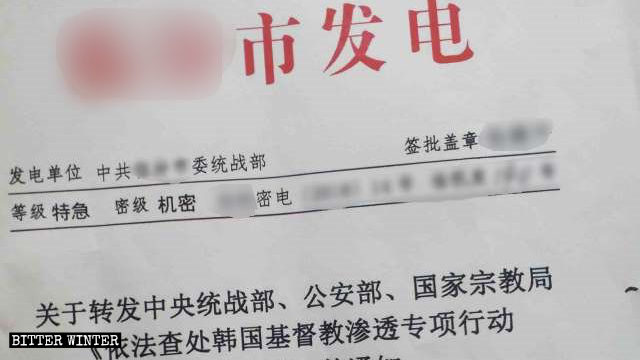
Ein Geheimdokument enthüllt die Pläne der chinesischen Regierung, die südkoreanischen christlichen Missionen in der Provinz Shanxi auszumerzen.

Japanische und südkoreanische Missionare wurden am 17. Mai aus China ausgewiesen und bekamen ein fünfjähriges Einreiseverbot. Vor ihrer Ausweisung waren sie fünfzehn Tage lang in Haft festgehalten worden.
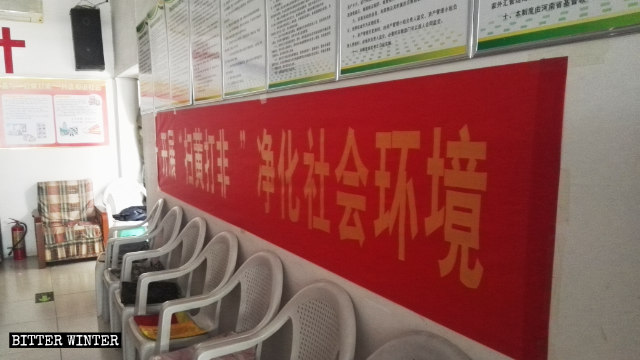
Im Rahmen der Kampagne „zur Ausmerzung von Pornografie und illegalen Veröffentlichungen” nimmt der Staat religiöse Versammlungsstätten aufs Korn und verhängt weitere Publikationsverbote.
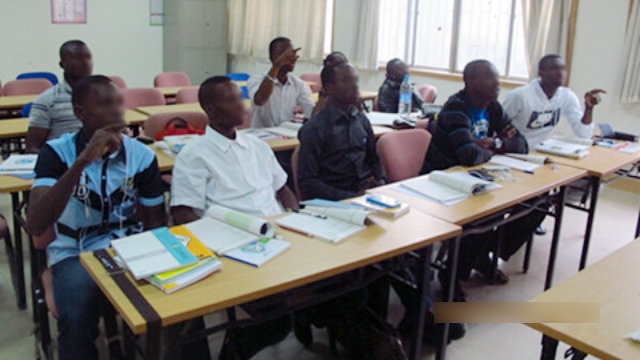
Sie dürfen ihre Andachtsstätten nicht besuchen oder sich den Chinesen anschließen. Außerdem stehen sie unter Überwachung und sind Zielscheibe geheimer Ermittlungen.
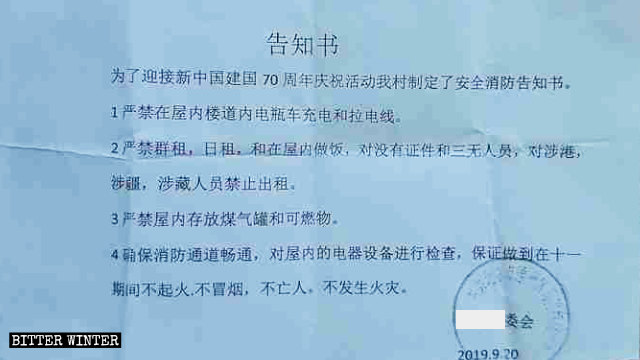
Um jegliche Gefahr abzuwehren, dass sich im Land eine demokratische Stimmung breit macht, ergreift die Regierung strenge Maßnahmen gegenüber Besuchern aus und Reisenden in diese beiden Gegenden.

Über 100 Gläubige wurden von der Polizei vorgeladen und befragt. Zahlreiche ausländische Missionare wurden festgenommen und aus China ausgewiesen.
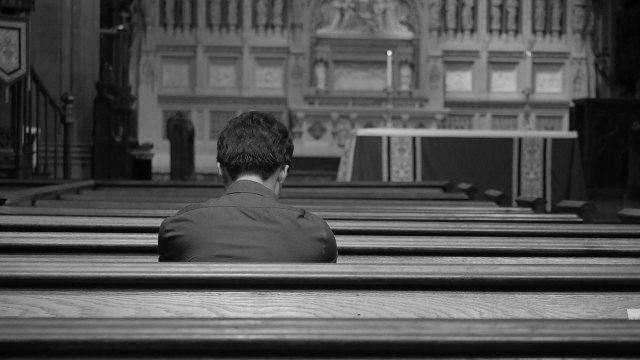
Die Prediger staatlich anerkannter Kirchen werden unter Druck gesetzt, Gott durch die kommunistische Ideologie zu ersetzen. Dem der sich verweigert wird mangelnde Loyalität gegenüber der Regierung vorgeworfen und entlassen.

Muslime außerhalb Xinjiangs sehen sich immer stärker werdender Unterdrückung ausgesetzt: Die KPCh entfernt die Symbole ihres Glaubens, kontrolliert Moscheen und setzt ihren Fünfjahresplan zur „Sinisierung“ des Islam um.

Die KPCh verschärft ihre Razzien gegen ausländische religiöse Gruppen in China; Gläubige dürfen keine Kontakte zu Ausländern haben und nicht einmal ausländische Fernsehprogramme ansehen.
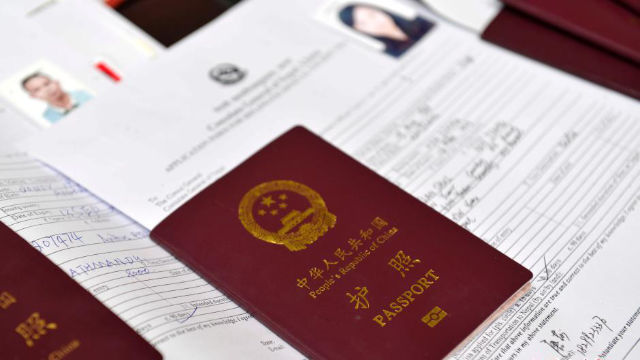
Provinzregierungen stärken die „Vereinigte Arbeitsfront“, um Chinesen im Ausland ausfindig zu machen und sie dafür zu benutzen, den Einfluss der Regierung im Ausland auszuweiten und Dissens zu unterdrücken.
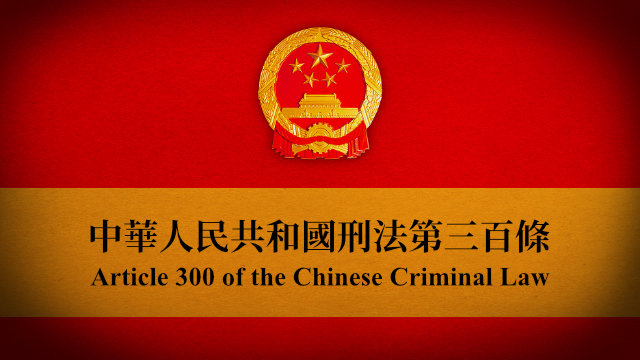
Eine, im wissenschaftlichen Journal of CESNUR veröffentlichte, Studie zu 200 Gerichtsurteilen zeigt, dass ein ganz normales Leben als gläubiges Mitglied in einer verbotenen Gruppe in China bereits ausreicht, um ins Gefängnis zu kommen.

Zum 70. Jahrestag der Herrschaft der Kommunistischen Partei hat sich Chinas Hauptstadt ein besonderes „Geschenk“ für die Gläubigen ausgedacht: Ihre Andachtsstätten werden geschlossen.
MASSIMO INTROVIGNE
MARCO RESPINTI
CESNUR
Via Confienza 19,
10121 Torino, Italy,
Phone: 39-011-541950
| Cookie | Dauer | Beschreibung |
|---|---|---|
| cookielawinfo-checkbox-advertisement | 1 year | Set by the GDPR Cookie Consent plugin, this cookie is used to record the user consent for the cookies in the "Advertisement" category . |
| cookielawinfo-checkbox-analytics | 11 months | This cookie is set by GDPR Cookie Consent plugin. The cookie is used to store the user consent for the cookies in the category "Analytics". |
| cookielawinfo-checkbox-functional | 11 months | The cookie is set by GDPR cookie consent to record the user consent for the cookies in the category "Functional". |
| cookielawinfo-checkbox-necessary | 11 months | This cookie is set by GDPR Cookie Consent plugin. The cookies is used to store the user consent for the cookies in the category "Necessary". |
| cookielawinfo-checkbox-others | 11 months | This cookie is set by GDPR Cookie Consent plugin. The cookie is used to store the user consent for the cookies in the category "Other. |
| cookielawinfo-checkbox-performance | 11 months | This cookie is set by GDPR Cookie Consent plugin. The cookie is used to store the user consent for the cookies in the category "Performance". |
| CookieLawInfoConsent | 1 year | Records the default button state of the corresponding category & the status of CCPA. It works only in coordination with the primary cookie. |
| viewed_cookie_policy | 11 months | The cookie is set by the GDPR Cookie Consent plugin and is used to store whether or not user has consented to the use of cookies. It does not store any personal data. |
| Cookie | Dauer | Beschreibung |
|---|---|---|
| _gat | 1 minute | This cookie is installed by Google Universal Analytics to restrain request rate and thus limit the collection of data on high traffic sites. |
| Cookie | Dauer | Beschreibung |
|---|---|---|
| CONSENT | 2 years | YouTube sets this cookie via embedded youtube-videos and registers anonymous statistical data. |
| _ga | 2 years | The _ga cookie, installed by Google Analytics, calculates visitor, session and campaign data and also keeps track of site usage for the site's analytics report. The cookie stores information anonymously and assigns a randomly generated number to recognize unique visitors. |
| _gid | 1 day | Installed by Google Analytics, _gid cookie stores information on how visitors use a website, while also creating an analytics report of the website's performance. Some of the data that are collected include the number of visitors, their source, and the pages they visit anonymously. |
| Cookie | Dauer | Beschreibung |
|---|---|---|
| NID | 6 months | NID cookie, set by Google, is used for advertising purposes; to limit the number of times the user sees an ad, to mute unwanted ads, and to measure the effectiveness of ads. |
| VISITOR_INFO1_LIVE | 5 months 27 days | A cookie set by YouTube to measure bandwidth that determines whether the user gets the new or old player interface. |
| YSC | session | YSC cookie is set by Youtube and is used to track the views of embedded videos on Youtube pages. |
| yt-remote-connected-devices | never | YouTube sets this cookie to store the video preferences of the user using embedded YouTube video. |
| yt-remote-device-id | never | YouTube sets this cookie to store the video preferences of the user using embedded YouTube video. |